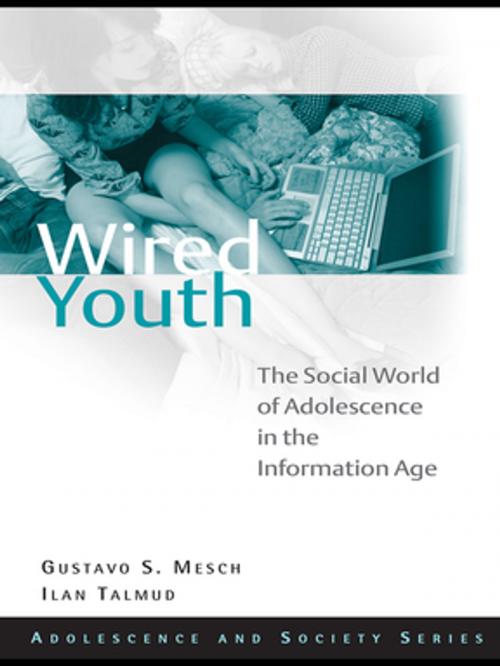Wired Youth
The Social World of Adolescence in the Information Age
Nonfiction, Health & Well Being, Psychology, Child & Adolescent, Adolescent Psychology| Author: | Gustavo Mesch, Ilan Talmud | ISBN: | 9781136995224 |
| Publisher: | Taylor and Francis | Publication: | April 5, 2010 |
| Imprint: | Routledge | Language: | English |
| Author: | Gustavo Mesch, Ilan Talmud |
| ISBN: | 9781136995224 |
| Publisher: | Taylor and Francis |
| Publication: | April 5, 2010 |
| Imprint: | Routledge |
| Language: | English |
The debate on the social impact of information and communication technologies is particularly important for the study of adolescent life, because through their close association with friends and peers, adolescents develop life expectations, school aspirations, world views, and behaviors.
This book presents an up-to-date review of the literature on youth sociability, relationship formation, and online communication, examining the way young people use the internet to construct or maintain their inter-personal relationships. Using a social network perspective, the book systematically explores the various effects of internet access and use on adolescents’ involvement in social, leisure and extracurricular activities, evaluating the arguments that suggest the internet is displacing other forms of social ties. The core of the book investigates the motivations for online relationship formation and the use of online communication for relationship maintenance. The final part of the book focuses on the consequences, both positive and negative, of the use of online communication, such as increased social capital and online bullying.
Wired Youth is ideal for undergraduate and graduate students of adolescent psychology, youth studies, media studies and the psychology and sociology of interpersonal relationships.
The debate on the social impact of information and communication technologies is particularly important for the study of adolescent life, because through their close association with friends and peers, adolescents develop life expectations, school aspirations, world views, and behaviors.
This book presents an up-to-date review of the literature on youth sociability, relationship formation, and online communication, examining the way young people use the internet to construct or maintain their inter-personal relationships. Using a social network perspective, the book systematically explores the various effects of internet access and use on adolescents’ involvement in social, leisure and extracurricular activities, evaluating the arguments that suggest the internet is displacing other forms of social ties. The core of the book investigates the motivations for online relationship formation and the use of online communication for relationship maintenance. The final part of the book focuses on the consequences, both positive and negative, of the use of online communication, such as increased social capital and online bullying.
Wired Youth is ideal for undergraduate and graduate students of adolescent psychology, youth studies, media studies and the psychology and sociology of interpersonal relationships.















